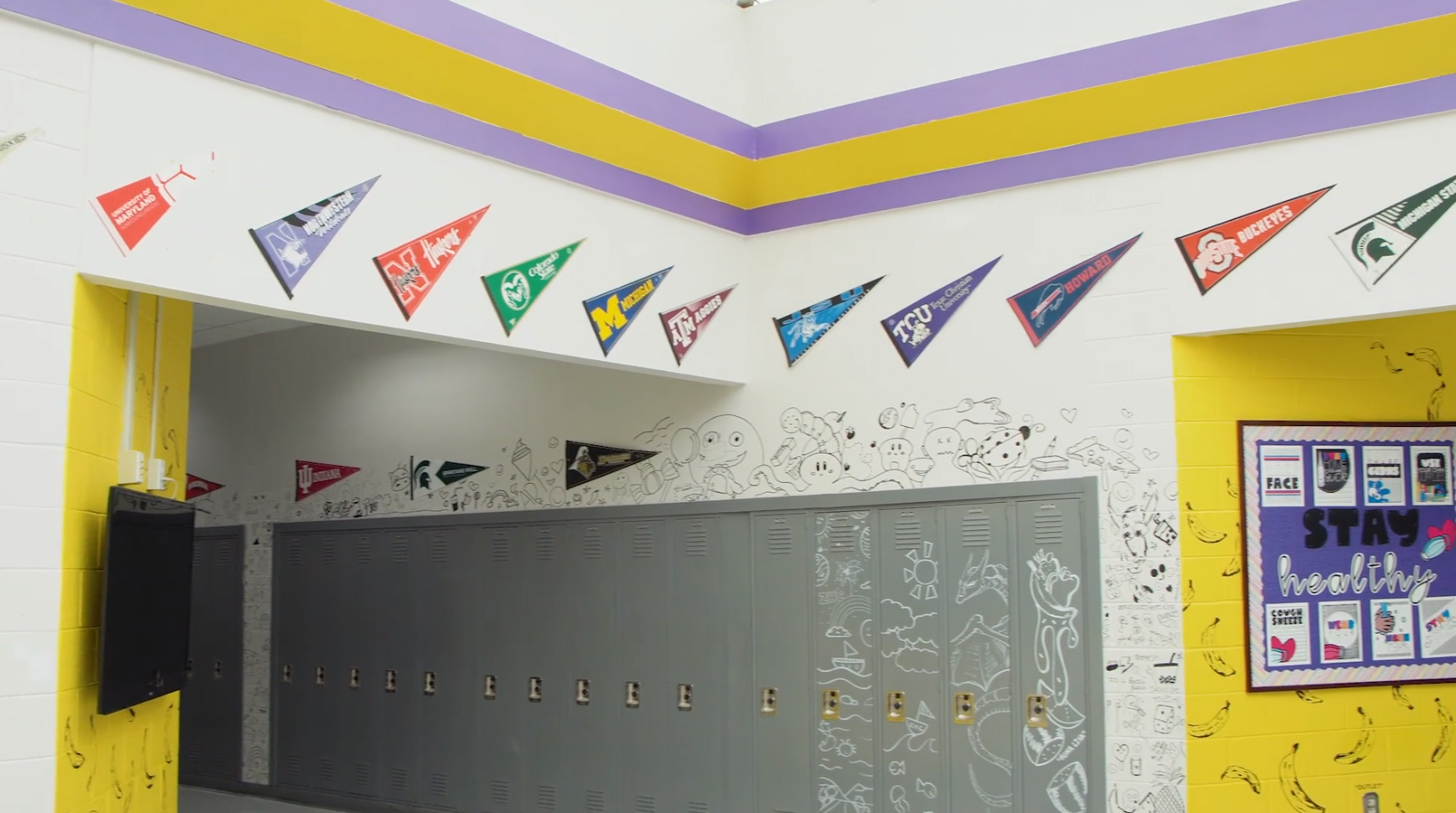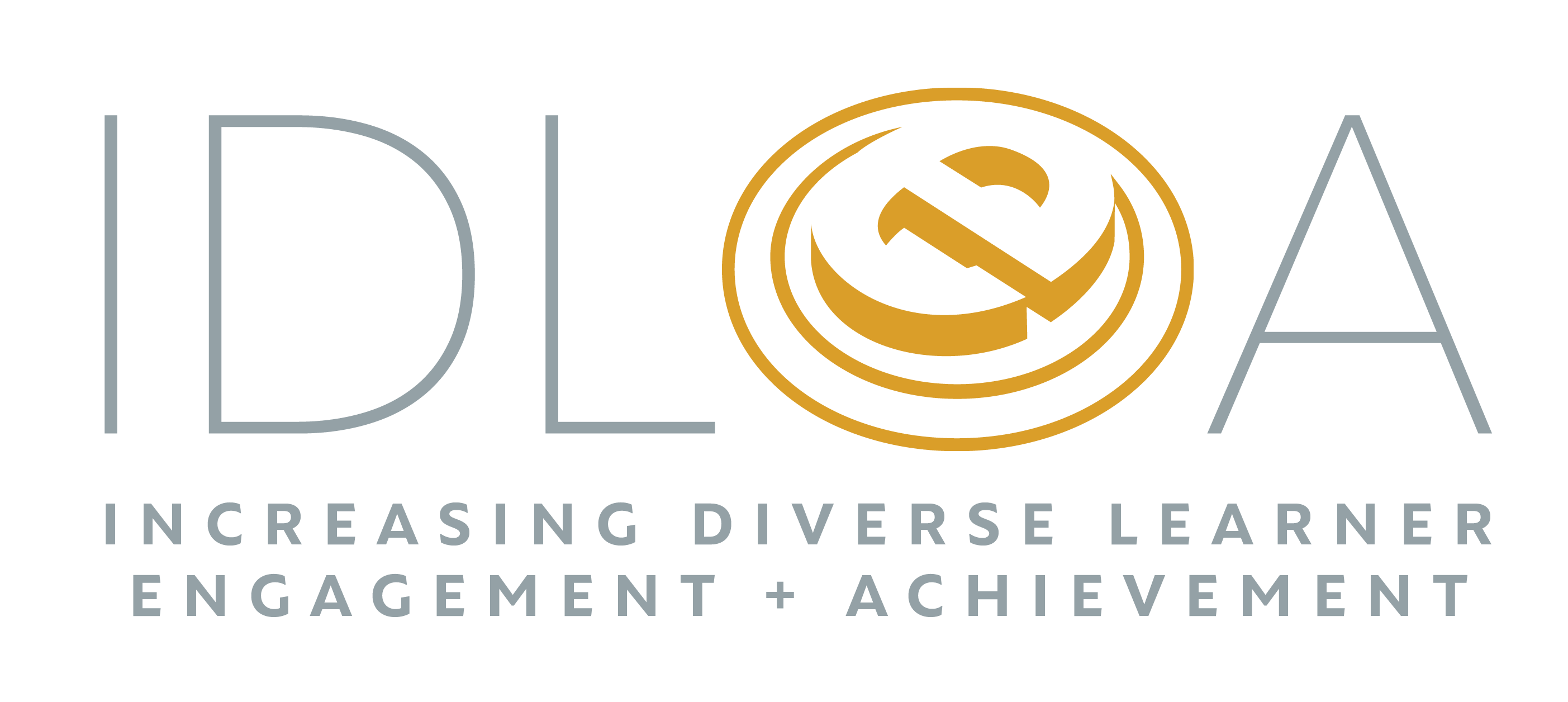“We have students coming out of math, saying ‘I love math. It’s my favorite subject!’ Everything we are looking for is happening.”
—Jenny Saeda, Special Education Chair
Pursuing Cooperative Learning in Math & Science
As part of the Strive Prep family of ten charter schools, Noel (Formerly Montebello) is a middle school serving students in grades 6-8. Looking at their baseline data, nearly 50% of students indicated that math was the hardest subject in which to pay attention and 17% indicated it was science. In addition, their feedback suggested that working with their peers would help them to feel more engaged. Based on this data, Strive Prep Noel is pursuing Cooperative Learning in both its math and science classes.
A training over the summer introduced the concept, and staff implemented strategies in both science and math classrooms the first week of school. Their guide for math specifically was “Building Thinking Classroom Strategies” by Peter Liljedahl. In science, they embraced Kagan strategies to focus on cooperative learning. A teaching model was provided to teachers for their first week of classes to assist them with planning going forward, which was welcomed by staff. Science teachers were asked to implement at least three new cooperative learning structures per quarter, allowing them to choose those that would best fit within their curriculum.
In math, explains Special Education Chair Jenny Saeda, students began working in random groups of three at non-permanent, vertical surfaces at least once per class period, such as while standing at a whiteboard. Instructions for a “thinking task” are given within the first five minutes of class. This is vast improvement from pre-implementation, when teachers were doing all the talking and students had zero opportunities for group work, said Jenny.
“Students were telling us that this would make them more engaged, and of course, cooperative learning has been studied. We know it works. It seemed like the perfect way to get students back into school and really, frankly turn things on its head, to make the most radical change in student engagement,” says Jenny.
Initially, Strive Prep Noel’s challenges were in dealing with behaviors and perseverance due to COVID concerns. In addition, 60% of their science and math teachers were newer teachers and it lost two of its three math teachers just prior to its initial staff training, requiring a longer implementation period and more professional development than originally planned.
Despite that initial hiccup, staff are seeing students responding quickly to the new approach. “We have students coming out of math, saying ‘I love math. It’s my favorite subject!’ Everything we are looking for is happening,” says Jenny who also shares that informal observations early on indicated 100% student engagement at times in both math and science. “All of our math teachers are implementing cooperative learning tasks on a daily basis, which is important to us. We want to make sure it becomes routine for the students, so that each day we're showing them something new.”
The most consistent engagement is present in 6th grade with 60-80% of students engaging in math tasks. Eighth grade has been slower to adapt, something Saeda attributes to peer influence and nervousness about talking to others or worse, being wrong, but the difference is not unexpected. She explains, “The approach is so different than what they're used to, but what's really cool is we want to keep it going, so if sixth graders are doing well each year, we hope that it will keep improving and become normal to them. This is how we do math. We do cooperative learning.”
“This is my fourth year here at this school and this is something I’ve not seen before,” says Angela Stevenson, a sixth grade math teacher, “Students are excited, they are wanting to try problems, they are thinking and they are working together.”
Defronting their classrooms has allowed their new student-centered learning approach to thrive. After a classroom observation in late August, Strive’s Director of Science reported many students raising their hands when asked a question and participating in conversation and debate, evidence of this new student engagement. In addition, the classroom was set up for student learning and participation, including excellent execution of stations. “Kids were already debating and arguing with each other in the first week of school and that’s because we put structures in place for kids to talk,” explains Jenny.
Angela agrees. “I would say for us and the three of us that are part of this team, this has been a wonderful experience for us so far, because we have had the additional time and resources to really take an area and focus on what we can do to make it better.”
For the Strive Prep Montbello team, the most rewarding part overall has been seeing students excited about math and science, which is what they set out to do. Identified by students as being the hardest to pay attention to, staff wanted to make it more fun and engaging. Their work has paid off, and other schools in the Strive network are taking notice. Noel’s sixth grade classes showed some of the highest growth on benchmark math tests compared to the other grades at the school, compared to ELA and compared to other schools in the network. Others in the Strive network are considering sending their staff to observe Noel’s new approach.
“It's not just like the anecdotal things that we're seeing,” says Jenny. “These sixth graders who are the most invested in cooperative learning, are seeing it pay off for them academically. That has been what's captured the attention of other schools that are now wanting to try some of what we're doing. That was a really big moment for us.”
Going forward, the charter is considering expanding cooperative learning to other subject areas such as ELA and World Studies. If they do, they may tweak their approach to include both year one and year two cohorts, providing opportunities for new teachers to engage in the process used this year, while existing teachers in the program can become internal experts who serve as trainers and mentors.
“We know that we learn best from each other and from being able to see it in action,” says Jenny. “So towards the end of the year, maybe we have the ELA and World Studies teachers come and do observations of the teachers who are doing it now. We're just excited to keep it going.”


